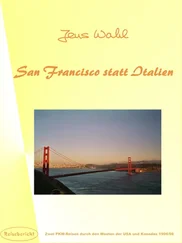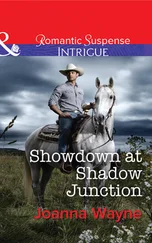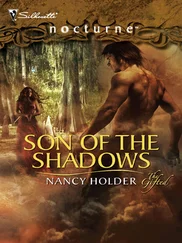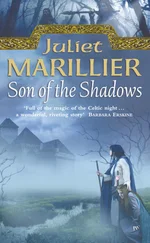Once, before he had to close the store, Papa asked Dad—I call my father, who’s ninety, alive and well, Dad, in the American way—if he wanted to join him in the business. But Dad was already in the plumbers’ union instead, with his brother, Unkie. The money was so good with buildings going up on the edges of the city. You had to pay a union man very well, then and now. But still Dad and Unkie wanted to be on their own, and do plumbing not only repairs but for schools and new houses. If they didn’t move just outside the city limits, to a suburb called Grant, the union men would have broke their legs for underbidding them in Chicago, which they owned lock, stock, and barrel. So they did move. Together, they bought the brick two-flat that’s the only home I remember having as a child, and they made out good.
I think my grandfather, Papa, was very sad; but he never said nothing, except to sigh about the end of the old ways. Jackie told him someday, when he was grown, he would make fine hats; and Papa gave him a fifty-cent piece. He also gave Jackie a hat and one to me. Jackie looked good in that gray fedora, like he did in everything he wore. I didn’t wear mine. The fact is, hats are coming back today. The black people wear them, and everybody young wears what they wear.
It was also him, Papa, who give us the relics. I don’t mean holy relics, like slivers of the true cross. I mean historical relics. They don’t have anything attached to them sacred or magic.
They couldn’t have.
That’s the whole point.
You see?
They were from his father. He kept them in a Cornelius hatbox.
We were twelve when he gave them to us.
It was summer. We were sitting out on the low, black wrought-iron fence right near the street, waiting to see Patricia Finnian, the oldest of those girls, Joanie’s big sister, walk past, the way she did every night. Patricia was wild. She would come swinging her shiny red plastic purse, with her black hair like a thing with its own eager spine dancing on her back, her breasts plain visible in the sinking light under her cheap cotton dress, and girls didn’t do that then, crossing the two streets from Grant into the city. She was seventeen and she had no eyes for Jackie or me. The Dagos picked her up around the corner in long white Lincolns. Patricia is a lady now. She lives out in Lake Forest in a house the size of a block in a normal place. Joanie and I get asked there for Christmas Eve, like the king asked his stable men to come in and have food on the night Christ was born. She gives us something Joanie and I laugh about the rest of a year, like once crystal bowls you put salt in, with tiny spoons.
That night, though, Papa called us to come over before Patricia came out. He lived across and one building over—and he says, I got this box I got to show you boys some things in.
He untied the strings and lifted off the top. There, in the top, was a flag folded, like for the dead. An American flag but not like one we had ever seen, not with the right number of stars, and so old the white was yellow. You knew it would crack like paper if you unfolded it. There was a big-brimmed hat all tore up, dirty black felt material. And there was pictures of a man with big earmuffs of sideburns. In one of them, he was holding two babies, one Papa’s father and one Papa’s twin brother, Pavel, who died from the scarlet fever. Twins run in families, so my mother turned out to be one.
Papa’s father served with the Sixth Wisconsin, the Iron Brigade, the bravest of all the Union forces, the miners and farmers who wore the big, black hats. The big-brimmed hat in the box was his. I guess that was how Papa’s father got his fondness for hats, those hats worn with so much pride. Papa was probably eighty by then, but he never forgot a thing, old or new. He said his father could do all sorts of things besides grow alfalfa and fashion a fine fedora. Once, after he sold his farm, he taught drawing for a family of girls whose father was rich, but no one could support a family teaching girls to draw. But the first Grandpa Nickolai really could draw anything he saw, Papa said, from his mother’s face in the mirror to the butcher’s hands. In the Civil War he drew dying men crazed with thirst in the fields in Pennsylvania, as they cried out in Dutch or German or with Irish on their tongues. Papa had his father’s music notation book with a black-and-white marble cover—filled with the drawings. Papa showed us them, so fragile and faded. Looking slowly through the drawings, being careful not to smudge the pencil marks more, Jackie said, “Papa, these are real good. Art and also historical. You should give them to the Field Museum.”
Papa said, “He did not mean for people to see them.”
Jackie asked, “Why?” And Papa shrugged as if he knew the answer but he wasn’t to say it. That must have been where Jackie got his gift for art.
There were some buttons in the box, too, and one old boot. The knife with two blades and bone handles was the next thing but one to the bottom. It was wrapped in a lady’s handkerchief.
Jackie was sitting closest, so Papa gave it to him.
Opened up, it looked just like that bug, a praying mantis. Papa said his grandfather got it off a Rebel soldier in the Civil War. Crazy with hunger, our great-grandfather used it to dig something like sweet potatoes from the ground, a farm before it was a battlefield. But he had nothing to cut dry wood with to make a fire so he could cook them. They was too tough to eat raw, since his teeth was loose anyhow.
“They all had scurvy or the dysentery,” Papa said.
“Did he have to shoot the Rebel?” I asked Papa. Papa looked out at the colored boys, who were just starting to sing around a fire in the trash can on the corner under the streetlight, up past where Grand ended and Chicago began.
“Someone made it named Furnace, see there,” Papa told us. “Think of your name being Furnace. Made by Furnace but they call it a Barlow knife. It is from England.” I asked again was he dead, the Johnny Reb, when our great-grandpa took the knife off him, and Nana came out. She pulled my hair and said, “Tcch! Enough!” Right then, my mom came in the back door with a casserole, looked at the hatbox, and cut her eyes at Papa like he’d sworn in Jesus’ name. Papa fell silent, pouty as a little kid. He felt deep in the bottom of the box and pulled out a man’s muffler, a winter scarf. Wrapped in that was what I got, a bayonet. It fitted to the end of his rifle, though no one knew what happened to the rifle.
“It’s American history, Marie,” he said.
“Of war,” Mom said. “We don’t want any more wars like when I was a girl. We’re done with wars.”
Us boys weren’t; of course, we didn’t know that.
Jackie’s knife was the better thing. Sure. He could carry it anywhere. Bring it out and examine it, in front of the Carney brothers like he was figuring who he should cut. The knife made up for a lot, not that Jackie needed it. But he never used it to hurt anybody or anything. He carved with it because it was still sharp as new. First, he made tiny teacups from acorns for his little sister and swords for him and me that we burned until they had points hard enough to pierce human skin. Then he started to carve sculpture things from scrap bits of cherry and mahogany Dad and Unkie brought home from new houses they were doing plumbing on. He carved birds and owls. Then hands. Then finally flowers. Auntie Maggie said the opening rose he made reminded her of the story of the Mistress of the Copper Mountain and the Stone Flower.
“There was a master carver,” she said. “And he could make flowers of stone and wood that looked more real than living flowers; but to do this he had to give up his love and remember nothing of his mother or his loyal sweetheart. But he gave back the gift, instead, and forgot the copper mountain until he was ninety years old…”
Читать дальше
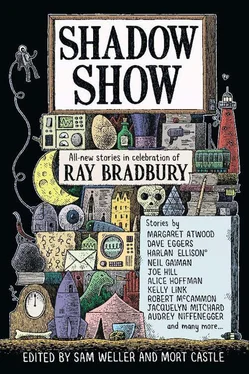


![Lord Weller - Ритера или опасная любовь [СИ]](/books/421202/lord-weller-ritera-ili-opasnaya-lyubov-si-thumb.webp)


